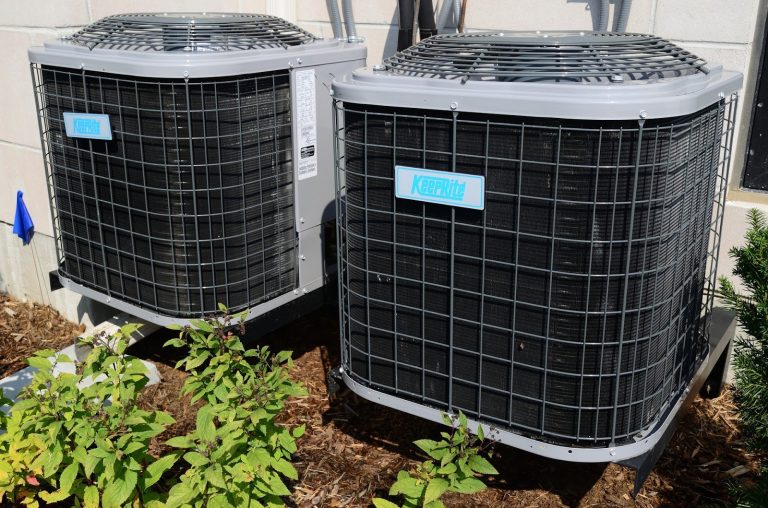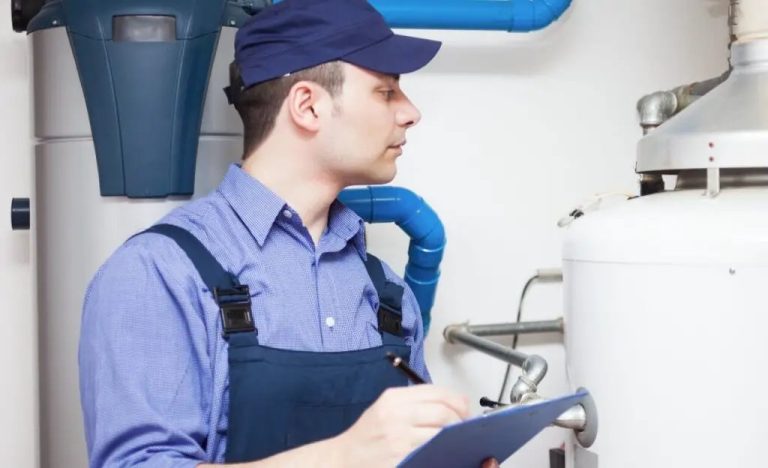How Do Air Conditioner Filters Work? A Comprehensive Guide
Air conditioner filters work by trapping dust, pollen, pet dander, and other airborne particles, preventing them from circulating in your home. They enhance air quality and prevent debris from accumulating on vital components of the system. Understanding how they work is important for maintaining the efficiency and lifespan of your unit.
Air conditioning is a modern-day blessing that keeps our homes cool and comfortable during hot summer months. Yet, have you ever wondered how this marvel of technology actually works? One crucial element that ensures its smooth operation is the often-overlooked air conditioner filter.
Surprising, isn’t it? A tiny component, often hidden away, holds the key to the efficiency and longevity of your air conditioning system. Air conditioner filters play a vital role in maintaining the health and performance of your cooling unit.
They function as the first line of defense, trapping dust, pollen, pet dander, and other airborne particles, preventing them from circulating in your home. In doing so, these filters not only enhance air quality but also prevent the accumulation of debris on your system’s vital components. For homeowners, renters, and individuals who own or operate air conditioning systems, understanding how air conditioner filters work is essential.
By comprehending their function, you can ensure that your air conditioner operates at peak efficiency, reducing energy consumption, and prolonging the lifespan of your unit. Additionally, knowledge of air conditioner filters allows you to identify and address problems such as poor air quality or ineffective cooling caused by clogged or incorrect filters. In this comprehensive guide, we will delve into the inner workings of air conditioner filters, demystifying their role and shedding light on their maintenance.
Understanding Air Conditioner Filters
Before we dive into the inner workings of air conditioner filters, let’s first understand what they are and why they are so important. Air conditioner filters are designed to improve the air quality in your home by trapping and removing airborne particles such as dust, pollen, pet dander, and bacteria. They serve as the first line of defense for your air conditioning system, preventing these particles from circulating and potentially causing health issues or damage to the system itself.
The Purpose of Air Conditioner Filters
The primary purpose of air conditioner filters is to enhance the air quality in your home. As the outdoor air enters your HVAC system, it passes through the filter, which traps dust, pollen, and other pollutants. This ensures that the air circulating in your home is clean and free from harmful particles, making it safer and healthier to breathe.
In addition to improving air quality, air conditioner filters also play a crucial role in protecting the components of your HVAC system. When dust and debris accumulate on these components, it can hinder their performance and lead to costly repairs or even system failure. By trapping these particles, filters help to keep the system clean and prevent damage, ultimately extending its lifespan and reducing maintenance costs.
The Different Types of Air Conditioner Filters
There are various types of air conditioner filters available on the market, each with its own unique characteristics and filtration capabilities. Let’s take a closer look at some of the most common types:
1. Fiberglass Filters
Fiberglass filters are the most basic and affordable option. They consist of a thin layer of spun fiberglass that captures larger particles but may not be as effective in filtering smaller pollutants. While they provide some level of protection for your HVAC system, they may need to be replaced more frequently compared to other types of filters.
2. Pleated Filters
Pleated filters are made of polyester or cotton and have a larger surface area compared to fiberglass filters. This increased surface area allows them to trap a higher volume of particles, including smaller ones. Pleated filters are generally more efficient in improving air quality and may last longer before needing replacement.
3. High-Efficiency Particulate Air (HEPA) Filters
HEPA filters are known for their exceptional filtration capabilities. They are highly effective in removing even the smallest particles, such as pollen, pet dander, and bacteria. HEPA filters meet strict standards set by the U.S. Department of Energy and can significantly improve the air quality in your home. However, it’s important to note that HEPA filters may require a more powerful HVAC system to accommodate their higher resistance, so be sure to check compatibility before installing them.
4. Electrostatic Filters
Electrostatic filters use an electrostatic charge to attract and trap particles. They can effectively capture both large and small pollutants and are known for their high efficiency. Some electrostatic filters are washable and reusable, making them more cost-effective in the long run.
How Air Conditioner Filters Work
Now that we’ve covered the different types of air conditioner filters, let’s explore how they actually work to improve the air quality and protect your HVAC system.
The Filtration Process
When air enters your air conditioning system, it first passes through the filter. The filter’s material is designed with tiny holes or pores that allow the air to pass through while capturing particles. As the air flows through the filter, larger particles are trapped on the surface, while smaller particles adhere to the fibers or other filtration media.
The effectiveness of a filter is measured by its Minimum Efficiency Reporting Value (MERV) rating. This rating indicates the filter’s ability to capture different sizes of particles. Higher MERV ratings indicate filters with finer filtration capabilities. However, it’s important to note that higher-rated filters may also restrict airflow, which can strain your HVAC system if it is not designed to handle the increased resistance.
The Importance of Regular Maintenance
In order for air conditioner filters to continue functioning effectively, regular maintenance is essential. This includes cleaning or replacing the filter at recommended intervals, which can vary depending on the type of filter and the manufacturer’s instructions. Neglecting filter maintenance can lead to reduced air quality, decreased energy efficiency, and increased strain on your HVAC system.
Air conditioner filters play a crucial role in maintaining air quality and protecting your HVAC system. By understanding how these filters work and selecting the right type for your needs, you can ensure that your home remains comfortable and healthy. Remember to prioritize regular maintenance to maximize the efficiency and longevity of your air conditioning system. With proper care, your air conditioner filter will continue to keep your home cool and clean for years to come.
Learn How to Clean an Air Conditioner Servicing AC Cleaning at Home – SMELL FREE AC
How often should air conditioner filters be replaced?
How do air conditioner filters work?
Can I clean my air conditioner filter?
What are the benefits of clean air conditioner filters?
Can dirty air conditioner filters affect energy efficiency?
Final Words: Importance of Air Conditioner Filters and Maintenance
In conclusion, air conditioner filters are vital for improving air quality and protecting your HVAC system. They trap and remove airborne particles such as dust, pollen, and bacteria, ensuring that the air circulated in your home is clean and safe to breathe.
Additionally, filters prevent dust and debris from accumulating on HVAC components, prolonging the lifespan of the system and reducing maintenance costs. There are different types of air conditioner filters available, including fiberglass filters, pleated filters, HEPA filters, and electrostatic filters.
Each type has its own unique characteristics and filtration capabilities, with HEPA filters being highly efficient in removing even the smallest particles. Air conditioner filters work by using their material’s tiny holes or pores to capture particles as the air flows through. The effectiveness of a filter is measured by its MERV rating, which indicates its ability to capture different sizes of particles.
Regular maintenance, such as cleaning or replacing the filter at recommended intervals, is crucial for optimal performance. By understanding how air conditioner filters work and selecting the right type for your needs, you can maintain clean and healthy air in your home. Remember to prioritize regular maintenance to maximize efficiency and longevity.
















